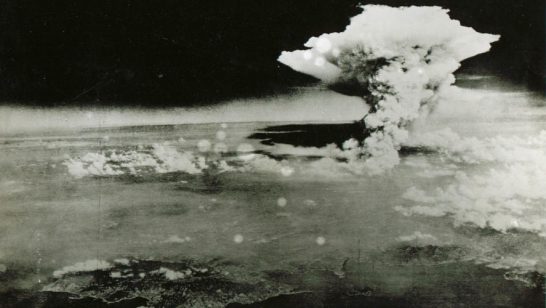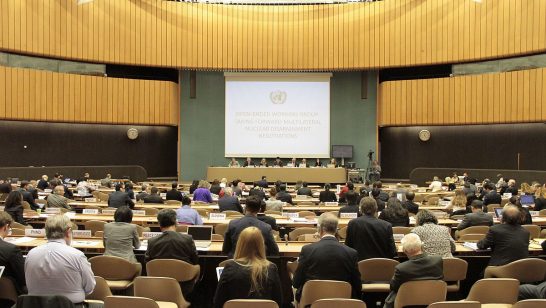
Reducing the role of nuclear weapons in the US security strategy, and urging others to do the same, was one of the key features of President Obama’s new approach to nuclear issues as expressed in his key statement in Prague in 2009. This bold announcement was reinforced one year later by the 2010 US Nuclear Posture Review, in which the US administration announced the adoption of stronger assurances to not use or threaten to use nuclear weapons against non-nuclear weapon states that are party to the NPT and in compliance with their nuclear non-proliferation obligations.
According to the Posture Review, any state eligible for such US assurances that uses chemical or biological weapons against the US or its allies and partners would face the prospect of a “devastating conventional military response”, but, in principle, not a nuclear response. This was a significant evolution from previous, more ambiguous US and NATO positions based on the traditional US desire to maintain all options when it comes to the use of nuclear weapons.
As a way of enhancing the President’s legacy in the nuclear field, which some consider disappointing, it has been reported that the US administration is now considering a further step: the commitment not to be the first to use nuclear weapons. The US would not be the one to initiate a nuclear war.
The concept of “No First Use” (NFU) has been on the agenda since the early days of the atomic era. During the Cold War it was notably promoted by the Soviet Union because of its perceived conventional preponderance and nuclear inferiority. Moscow wished to prevent a NATO nuclear response to a possible Soviet conventional military action. After the collapse of the USSR, the Russian Federation reversed its position. Based this time on the perception of its conventional inferiority, Moscow did not wish to exclude a nuclear response even if attacked by conventional weapons or with chemical/biological weapons.
At present, of the five NPT nuclear weapons states only China has adopted the NFU principle. So far, NATO as a whole, with the exception of the UK, has been reluctant to adopt the lighter security assurances contained in the 2010 US Nuclear posture Review (see article ‘NATO Must Change Declaratory Policy in Chicago’). Of the four non-NPT nuclear capable countries (India, Pakistan, Israel, DPRK) only India has declared to abide by the NFU doctrine.
One cannot overestimate the value of NFU because of its unilaterality, its declaratory nature, its reversibility (it would not be legally binding) and the fact that it is not verifiable. However, should the nine previously mentioned nuclear armed countries adopt NFU, this would be a major breakthrough in the present confrontational strategic environment in which the risks of a nuclear war have increased considerably. Even if only adopted unilaterally by the US, it would be all the more significant coming from a major recognized nuclear player. “As the first country to have used such weapons” – these were the President’s words in Prague – “it (the US) has a moral responsibility to act and to lead”.
Such a measure would not mark the end of the nuclear nightmare: countries would still keep their weapons. Moreover the US would remain protected by the most advanced missile defense network and would still retain the capability of responding to a nuclear attack with a devastating nuclear response. But an NFU policy adopted by all nuclear capable countries would logically lead to the prohibition of any use of such weapons and to a severe reduction of their strategic relevance. This would be a major step forward on the path to a world free of nuclear weapons, an objective unanimously shared by the NPT countries.
As indicated in a recent supportive statement by colleagues from the Asia Pacific Leadership Network “a No First Use policy would avoid the need for forward deployment, launch-on-warning postures, and pre-delegation of authority to battlefield commanders, significantly dampening the prospects of accidental and unauthorized use”.
President Obama should therefore be encouraged to adopt this concept as one fully consistent with his Prague agenda. Washington could launch the project within the framework of the five NPT Nuclear Weapons States meetings (a gathering originally promoted by Des Browne, Chair of the European Leadership Network) and encourage partners to join. A majority would probably be ready to sign on. The project might be brought to the attention of other players and debated within the EU Common Foreign and Security Policy where it would find many encouraging voices. In principle, the Non Aligned Movement would be supportive and a consensus could also be reached at the UN General Assembly.
In a recent essay Michael Krepon, co-founder of the Stimson Centre, brilliantly indicated the many reasons why it would be in the US interest to adopt the NFU concept. However he surprisingly comes to the conclusion that “this is not yet the time to jettison the first use option”. Indeed one can always wait for more propitious circumstances. But precisely because of growing tensions, it takes greater courage to take de-escalatory steps than to persist in a confrontational spiral. It is highly improbable that any future leader will be more inclined to take such a step than Nobel Peace Prize laureate Barak Obama. The time to lay the foundations for this project is now.
The opinions articulated above represent the views of the author(s), and do not necessarily reflect the position of the European Leadership Network or any of its members. The ELN’s aim is to encourage debates that will help develop Europe’s capacity to address the pressing foreign, defence, and security challenges of our time.



